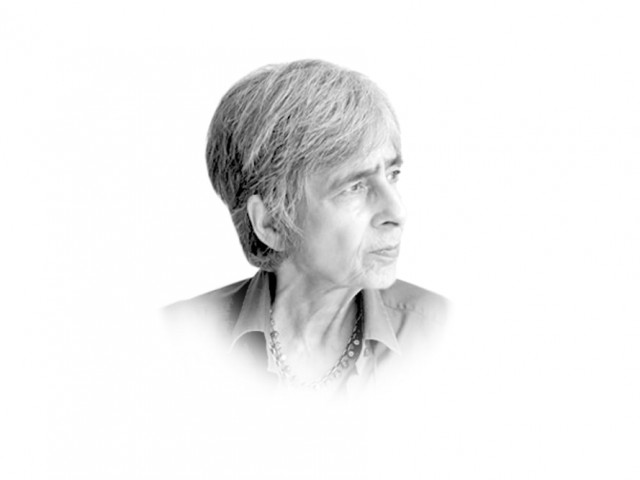The long pot-holed road
The Objectives Resolution denied all Jinnah had stood for, plunging Pakistan into a morass of religious ideology.

The long pot-holed road
Who, in Pakistan, has ever overtly shown, with no strings attached, a true commitment to the democratic spirit or to whatever constitution has been in place? Admittedly, the start was not propitious, the country was born in bloodshed, refugees poured in, assets were hard to come by, as was competent manpower on the political and other fronts. So democracy was not part of the country’s birth.
Founder Jinnah, under the circumstances, had little choice, one supposes. He decreed that he be governor-general, president of the first constituent assembly and a cabinet minister. He failed to come up with even a draft constitution and the sole guidelines he laid down in his much quoted August 11, 1947 speech to his constituent assembly have been assiduously ignored by all who followed him. The good was indeed interred with his bones and the ‘iffy’ lived on — and on.
On August 22, 1947, with the country less than 10-days-old, the government of Dr Khan Sahib in the NWFP was sent packing so that a Muslim League government could be installed. On March 19, 1948, Mr Jinnah, at Dhaka’s racecourse, declared that Urdu and Urdu alone would be the state language of Pakistan, thus striking the first blow at East Pakistan. On March 28, 1948 Balochistan was annexed to Pakistan with the Khan of Kalat being ‘persuaded’ to sign an instrument of accession. On April 26, 1948 Ayub Khuhro’s government in Sindh was removed and a suitable successor appointed.
Mr Jinnah died on September 11, 1948. On January 25, 1949 his trusted lieutenant and prime minister manoeuvred the ousting of the Punjab assembly so that a chief minister of his choice could be installed. The biggest blow came on March 7, 1949 when the Objectives Resolution was passed, denying all that Jinnah had professed to stand for in his famous speech and plunging the country into a controversial morass of religious ideology.
Phew! Quite a lively start, so really who should be surprised at what has followed. It took the constituent assembly just under 10 years to come up with a constitution. On March 2, 1956 the constitution of the Islamic Republic of Pakistan received assent. It had a short insalubrious life and in a couple of years with the advent of the first of the military adventurers, it was consigned to the trash can, unmourned.
“Once the first constitution is destroyed, it is doubtful that any succeeding one will ever be truly accepted.” (The Enigma of Political Development by Lawrence Ziring.)
The first of the military adventurers gave the nation a second constitution in 1962, which also had a meaningless life as he did exactly as he wanted (and not too badly to begin with) and it was jettisoned by the second of the military adventurers in 1969.
Then along came the third one, gifted to us by the gifted Zulfikar Ali Bhutto. This was messed up on day one by its maker who issued a presidential order suspending most of its fundamental rights and continuing a state of emergency. He later amended it seven times to suit his political and personal purposes.
We now have a constitution that has been amended 19 times, twice by this present, incoherent, dysfunctional thing known as government. It has been rendered an unintelligible document as each of the amenders, including the present lot, have had themselves foremost in mind rather than the country at large.
Sad — all of it.
Published in The Express Tribune, September 10th, 2011.















COMMENTS
Comments are moderated and generally will be posted if they are on-topic and not abusive.
For more information, please see our Comments FAQ